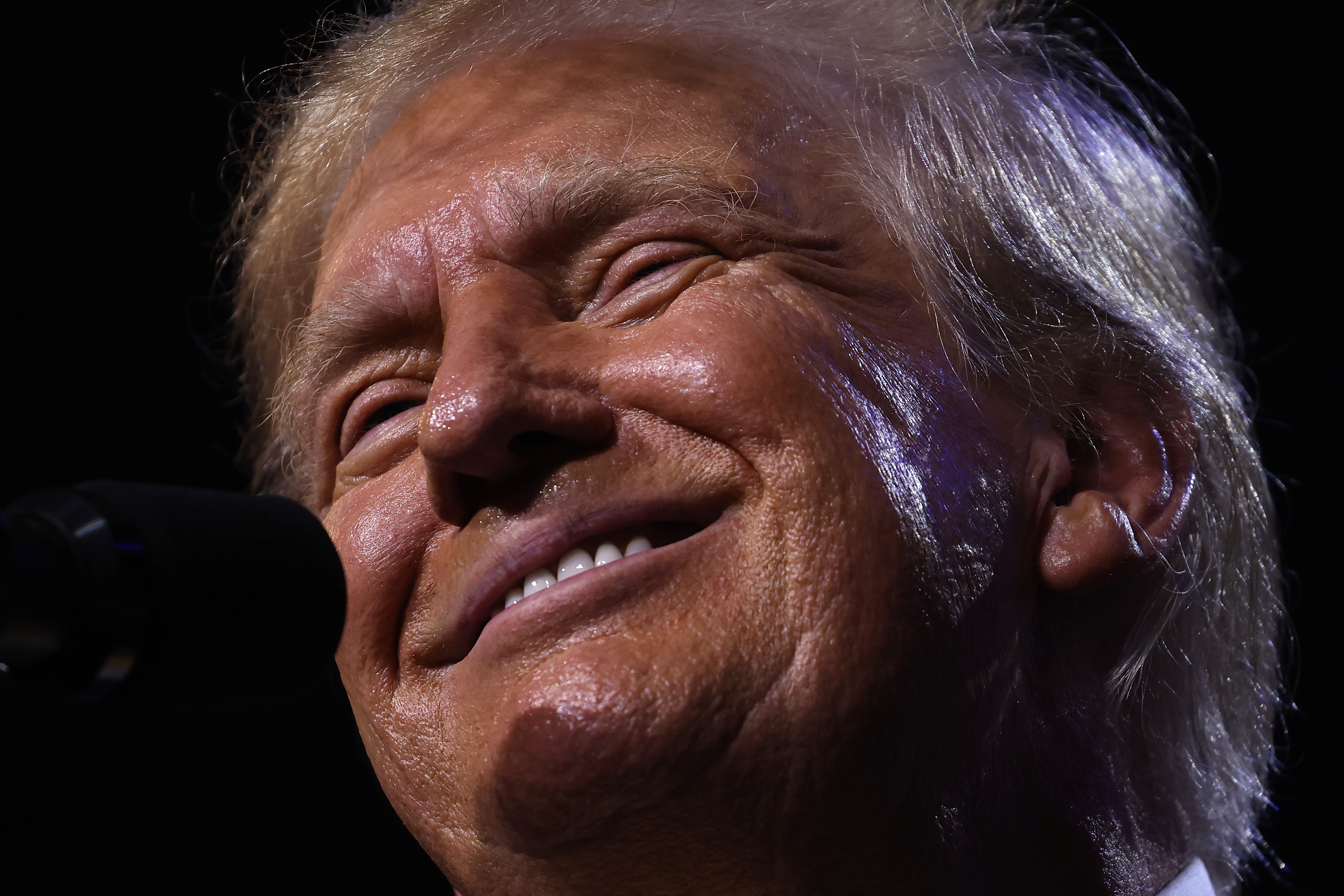The jury in Donald Trump’s hush-money payments trial has found the former president of the US guilty of falsifying business records in relation to payments made to adult film star Stormy Daniels. The guilty verdict marks the first felony conviction of an American president.
Speaking to reporters after the verdict, Trump called the trial a “rigged decision, right from day one”. He is likely to appeal the verdict. Trump had been facing 34 felony charges stemming from his conduct in the lead-up to the 2016 US presidential election. He faces three other criminal indictments that are unlikely to go to trial before the November election, and in 2023 he was found liable for sexual abuse in a civil suit involving writer E Jean Carroll.
Despite these legal troubles, many Republicans still support Trump and would vote for him as president, even while acknowledging his faults outside of public office or the courtroom.
In fact, 56% of Republicans say Trump’s sexual misconduct should not disqualify him from running for president.
Moral decoupling
Republicans typically offer various reasons for supporting Trump, even while recognising his sexual harassment of women. For example, some suggest that Trump is the victim of a political witch hunt, whereas others claim his current trials and charges are a form of election interference.
Why do many Americans continue to support Trump? And are there psychological reasons that explain why people remain supportive of politicians despite their moral or political failings?
“Moral decoupling” is a cognitive process that can explain why some people continue to support leaders in politics, media and sports even when they believe these leaders have significant moral failings outside of their professional vocation.
Moral decoupling is the ability to separate one’s judgements of a person’s moral character from one’s judgements of that person’s performance or abilities in public office. In simpler terms, it’s the mental process of saying: “I don’t agree with their actions, but I still think they’re effective at their job.”
Moral decoupling can explain why, for example, Woody Allen continues to have a dedicated fan base and receives support in the film industry despite facing allegations of sexual misconduct. Many fans and professionals separate their appreciation for Allen’s movies, such as Annie Hall and Midnight in Paris, from his personal controversies, allowing them to continue supporting and valuing his work while disregarding the allegations against him.
There is some reason to believe that conservatives might be more likely to morally decouple than liberals. People who identify as conservatives tend to think in narrower terms.
That is, conservatives tend to focus on particular issues, seeing them as separate from others, not representative of “who” the person is. Separating issues fulfils a psychological need to see the world in a more clear-cut and orderly manner.
Meanwhile, liberals tend to look at “the big picture”. This explains why, for example, conservatives support politicians like Ron DeSantis, who focuses on specific policies like education and the handling of Covid-19, whereas more liberal people support politicians like Bernie Sanders, who strive for systematic change.
Implications for the future of democratic politics
Moral decoupling poses challenges for the future of democratic politics. As voters increasingly separate their judgements of personal morality from political leaders’ effectiveness in office, this trend could normalise misconduct by public officials.
Electors may increasingly justify such misconduct by elected officials, with supporters focusing on the candidate’s stance on a particular issue rather than their ethical values or fitness to hold office. It also reduces the need to hold public officials accountable not just to their office, but also to the public they serve. Indeed, effective political leaders are ethical leaders.
To address these challenges, it is crucial for members of all societies to foster a political culture that values both effectiveness as well as ethical conduct. Encouraging transparency, accountability and open dialogue about the moral implications of political actions can help to mitigate the negative effects of moral decoupling.
Given the cognitive bases for moral decoupling, one way is to promote a more holistic approach to evaluating political leaders so voters can ensure that ethical considerations remain an integral part of the democratic process.
Although moral decoupling helps to explain why voters continue to support leaders despite their moral failings, it also highlights the need for a balanced approach to political judgement.
As democracies evolve, it is essential to recognise the complexities of moral decoupling and work towards a political environment in which both ethical integrity and effective leadership are equally valued. DM
First published by The Conversation.
Eugene Y Chan is an associate professor of marketing at Toronto Metropolitan University in Canada; Ali Gohary is a lecturer in marketing at La Trobe University in Melbourne, Australia.
This story first appeared in our weekly Daily Maverick 168 newspaper, which is available countrywide for R35.





